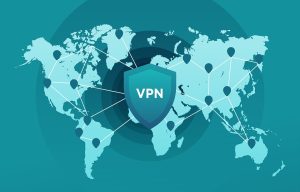Top 5 Reasons to Avoid Using absolutely Free VPN

Top 5 Reasons to Avoid using absolutly FREE VPN Cyber security dangers to businesses and individuals are growing on a daily basis. The good news is that customers are becoming more conscious of the quantity of personal information they are unknowingly disclosing to online firms. VPNs are frequently recommended by cyber security professionals to mitigate these threats.
The term VPN stands for Virtual Private Network. It hides your IP address, encrypts your browser data, and allows you to circumvent geo-restrictions.
Ideally, your data should be completely secure and under your control. Unfortunately, this is not always the case, and the security of your data will be determined by the type of VPN you use.
Some VPN providers may lure you by promising to keep your data safe and secure online for free. These claims are too good to be true, given the technology that allows VPNs to function.
Remember that there are no free lunches when it comes to VPNs. To operate, a VPN necessitates sophisticated software and costly infrastructure. If someone offers you that service for free, you’re surely paying in other ways.
Here’s a quick rundown of the drawbacks of utilizing a free VPN, so you’ll be motivated to explore for other solutions the next time you’re given free VPN services!

1. There is no protection for personal data.
Standard VPN connections do not provide complete online anonymity. VPN merely masks and encrypts your IP addresses. Websites where you have an account, such as Google, will always have access to your data, independent of VPN.
It’s considerably worse if you use a free VPN. Users’ data is collected by free VPN providers who integrate tracking techniques in their services. Furthermore, despite utilizing a VPN, websites with newer and better monitoring technologies, such as browser fingerprinting, would be able to track and gather your data.
Paid VPNs, on the other hand, require your membership money and cannot risk security failures. They never share your data or follow your behavior because that is not how they make money.
2.Slow internet connection
A VPN connection slows down your internet connection. To make your internet usage really private, two steps must take place: encrypting and decrypting your browsing data. The VPN server reroutes and encrypts the connection between you and the internet. This, however, causes severe lag in your internet speed.
This lag is exacerbated by free VPNs. This simply means you’ll waste more time waiting for online pages to load.
3. Increased phishing attempts
Using a VPN does not protect you from cyber security threats or hacking, and using a free VPN makes you a prime target. Some of these free VPN services serve as fronts for malware delivery operations. These VPNs are fraught with vulnerabilities since the technology behind them is either obsolete or poorly regulated.
Free VPNs have intrusive advertisements. Free VPN companies do not charge for their services, and their revenue is mainly generated from advertisements. They display pop-ups and may drive you to harmful websites. These ads might appear at any point throughout your browser sessions and can be annoying. If you click on these pop-ups, whether consciously or unknowingly, you may be exposing yourself to a phishing attempt, and your device may become infected with malware before you realize it.
In fact, if an employee in your organization falls victim to this type of phishing assault, they may be allowing cyber-criminals to enter your whole network. Many large-scale ransomware assaults begin as phishing scams.
As a result, proper personnel training in cybersecurity and ransomware readiness is essential today.
4. Restricted website access
One of the main reasons VPNs are growing popular is their ability to circumvent geographic restrictions on content-based websites. Due to copyright difficulties, Netflix, for example, only enables the streaming of particular videos in specific countries.
Accessing such stuff from a different place necessitates finding a means around that limitation. VPNs and proxies can be simply used to do this.
However, utilizing a free VPN to view Netflix content will almost always fail. Free VPNs employ insecure encryption technologies, and websites with strict security protocols will restrict access if such techniques are detected.
Only a few premium VPNs can unblock Netflix material, and even when they do, maintaining the connection for an entire movie show is always challenging.
5. Enhanced data consumption
As previously stated, a VPN connection entails an encryption and decryption process. When you connect to the internet, these procedures consume more bandwidth. You will end up using more data than if you did not use a VPN at all.
Free VPNs exacerbate the problem by wasting your data due to obtrusive adverts, weak encryption technology, and bandwidth sales.
Summery
Remember that free VPNs are not completely free. The dangers of using them outweigh the risks of avoiding them.
To ensure your data is private and secure on the internet, you should consider using premium VPN services or VPN alternatives such as an anti-detect browser. If you use a VPN, ensure sure it is reliable and secure.
PRINCE BARVE is the author of this work.
Since 2013, Prince has been interested in Ethical Hacking and content creation. Throughout his career, he has amassed a wealth of experience in a variety of sectors, with a focus on cyber security and technical writing. He is currently a Managing director at hacktechmedia, where he enjoys assisting the employees in improving their abilities and creating catchy and valuable content for the audience. He has also taught over 1000 students on ethical hacking.
